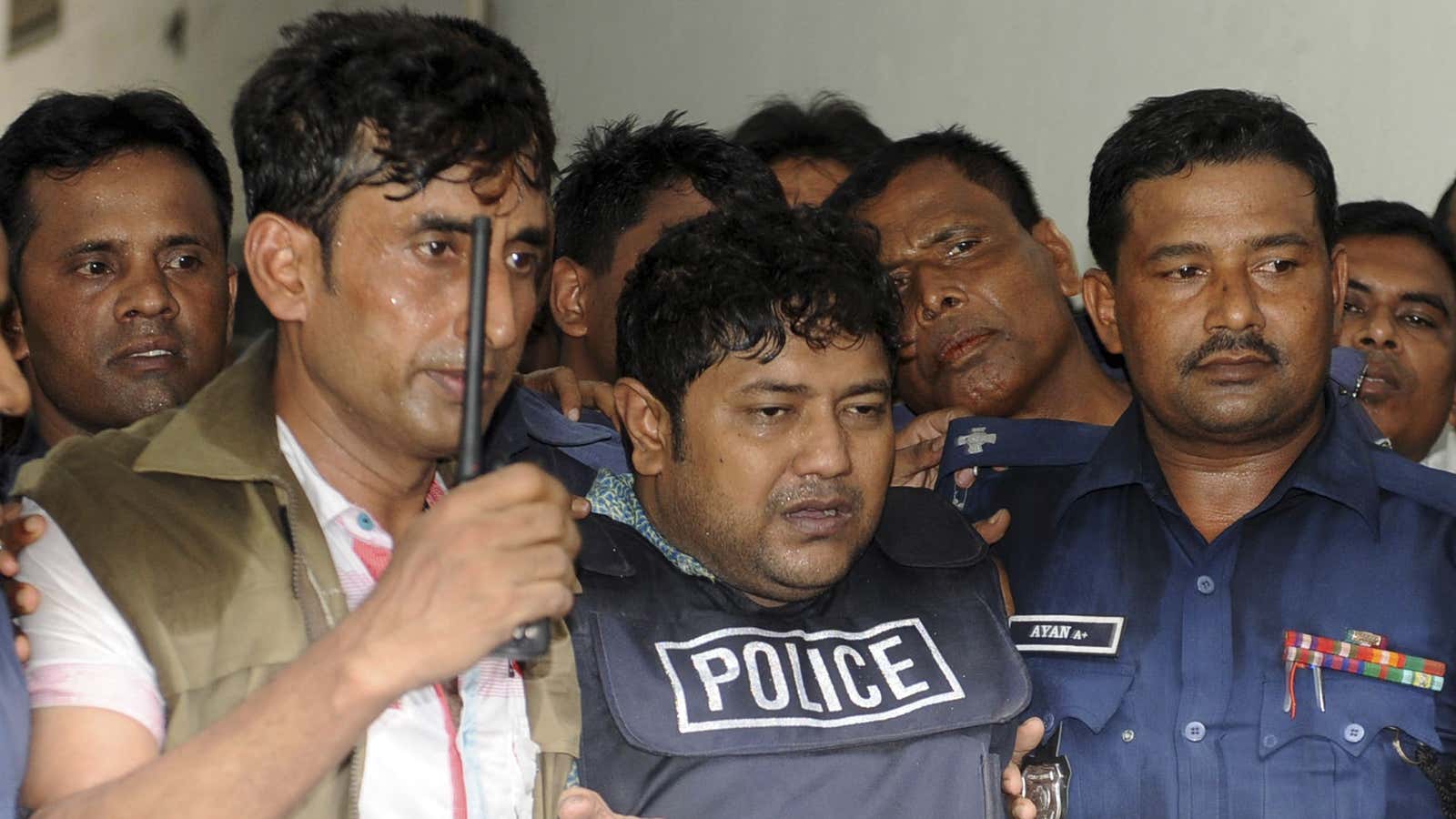In the two years since the collapse of a Bangladeshi factory complex killed more than 1,100 people, many of the survivors—mostly female garment workers—have struggled to find new jobs and collect compensation for the irreparable injuries and horror they endured.
On Monday, Bangladeshi police charged more than 40 people involved with the catastrophe at Rana Plaza, just outside Dhaka—including the building’s owner, Mohammad Sohel Rana—with murder.
The details that led to these charges are gruesome. Originally, Rana and his cohorts were charged with culpable homicide, which was the same charge leveled in another tragedy, the fire at the Tazreen Fashions facility, where 112 workers died trapped behind padlocked doors. (One young man had time to call his mother three times before he perished, desperate to escape as his lungs filled with smoke.) When it became evident that Rana had ordered fearful workers to re-enter the factory after a crack appeared in the building’s structure, prosecutors changed the charges from homicide to murder.
Rana rightfully earned the vitriol of his fellow Bangladeshis when he tried to avoid punishment in 2013, hiding from authorities and attempting to cross the Indian border. Now, if he is convicted, he could get the death penalty.
The time for a sea change is long overdue. Bangladesh’s garment sector—which is second only to China’s when it comes to clothing exports—is essential to lifting much of the country’s population out of crushing poverty, but it is also deadly. These charges are a small step toward a garment sector that’s safe for workers in Bangladesh, but there’s still a need for accountability along each step of the supply chain.
Corruption is endemic to the garment industry in Bangladesh. In 2013, Mushrefa Mishu, President of the Garment Workers’ Unity Forum, told CNN that more than one in 10 of the country’s lawmakers owned garment businesses, and the Daily Star reports that 14 government officials, including building inspectors, were among those charged in relation to the Rana Plaza collapse. Already, more than half of those accused are on the run; only four, including Sohel Rana, are in jail.
Sarah Labowitz, co-director of the Center for Business and Human Rights at New York University’s Stern School of Business, pointed out that the charges are a strategically wise step for Bangladesh’s garment industry, which is eager to show global consumers that is cleaning house.
“The announcement of charges is an important first step toward accountability,” Labowitz told Quartz. “But there is still a long way to go before anyone is brought to justice.”
